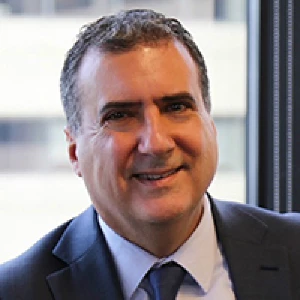 Lab technicians working | World Bank
Lab technicians working | World Bank
We live in uncertain times testing us as individuals and societies. But this uncertainty won’t last forever. What matters is our ability to adapt to this new reality of rapid change, surprising crises and other disruptions.
Today we’re talking about the COVID-19 (Coronavirus) pandemic. Tomorrow we’ll be talking about something else equally unexpected, upsetting and painful. Latin America needs to bulk up to be able to adapt. This isn’t a medical prescription, rather a diagnosis that many experts agree on of the times we live in.
Latin America is one of the riskiest regions on the planet. This is laid out in the World Bank’s 2018 report, From Known Unknowns to Black Swans: How to Manage Risk in Latin America and the Caribbean. Earthquakes, storms, hurricanes and other natural disasters are common in our countries. External crises and wide swings in international commodity prices add to the uncertainty.
We talk about black swans as events that are - by their nature – unpredictable, but then appear on the horizon. Everything that we thought was stable, or even permanent, suddenly isn’t. In the past these were rare. Not so much anymore. And they touch every aspect of life. Disruptions like COVID-19 force us to question what we felt certain about, and – above all – to be more prepared and better at responding.
It’s in times like these when the best of ourselves often comes to light. We see the explosion of solidarity in the streets - between complete strangers suddenly linked by invisible bonds. We see it in the emotionally-charged songs that drift out from balconies across Italy and we see it in the applause across Spain for the doctors and nurses at the frontline of the crisis. These are gestures that inspire and reinforce the certainty that soon we will get past this challenge.
But right now, we are fighting on many fronts and we need to attack in a coordinated manner. National health systems across the region need to have the capacity to contain this viral outbreak and they need to be able to monitor the condition of the general population to intervene in time. For that, they need laboratory equipment, tracking systems and people trained in first response. They also need hospital infrastructure, with enough intensive care wards, quarantine areas and basic supplies like gloves, masks and portable ventilators.
The needs are great and come in all shapes and sizes. Not just supplies, but policies and strategies. In addition, each country has specific needs that this crisis has brought to light. That’s why we are working with them to design programs that respond to the demands that the coronavirus brings up in each case.
The World Bank approved a US$14 billion emergency fund to immediately target a global response, making sure that the poorest and most vulnerable countries have greater access to these resources. Many people are going through a very difficult situation, both physically and emotionally. We must move as fast as possible to bring them relief. They are our priority.
In Latin America and the Caribbean the Bank is working hard with governments to help them respond quickly and flexibly to the pandemic and minimize the economic impact , which is still hard to measure, but will be significant.
A clear priority right now is to stop the spread of COVID-19. In other words, to reduce the risk that the pandemic poses to the region and the world. It is vital to put all our efforts there now that we know what kind of threat we face.
However, on broader level, we need to acknowledge that being ready for the risks of a black swan is almost impossible. We can’t anticipate them or change their nature. In the best of cases, we can blunt their effects with a mix of appropriate preventative policies. What we are talking about is reducing vulnerabilities and reinforcing our capacity to respond.
The means having strong and credible institutions that are capable of managing a crisis with operational solvency and transparency. It also means making the necessary investments in infrastructure, training and equipment. We also need to make emergency funds available, be flexible in reassigning budget priorities and have solid macroeconomic policies that can adapt and withstand an unexpected shock.
In sum, balanced accounts, institutional strength, planning and the development of human capital are the best defenses against a blow that is hard to anticipate. Unfortunately, these are debts that remain to be paid.
A virus like the current one might not fall into the category of something more or less predictable, whose effects can be mitigated with some good practices. But neither is it something totally unimaginable. It is something that we can expect. And that’s why we need the antidote: solid institutions.


Join the Conversation